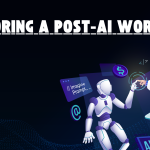Quick Take:
The potential for AI in healthcare is enormous, from diagnosing diseases in seconds to personalizing treatments. However, challenges like data privacy and ethical concerns are significant barriers to widespread adoption.
AI’s Promise in Transforming Healthcare
The idea of leveraging vast amounts of global medical data to train AI systems could unlock revolutionary solutions. Imagine AI models analyzing billions of anonymized health records to identify optimal treatments for conditions like cancer or heart disease. This approach could save countless lives by providing instant, data-driven insights for doctors and researchers.
The Privacy Paradox
While the vision is inspiring, privacy laws like GDPR and HIPAA make it nearly impossible to collect and share sensitive patient data on a global scale. Efforts to anonymize data by removing personal identifiers can mitigate some concerns but often reduce the dataset’s richness, limiting the AI’s effectiveness. Adding genomic data, for example, could offer groundbreaking insights but also significantly increase privacy risks.
AI Already in Action
AI is not entirely absent from healthcare innovation. Radiology, for instance, uses AI to analyze medical scans like X-rays and MRIs, assisting doctors in diagnosing diseases. Some systems even integrate preliminary AI diagnoses with human expertise, creating a collaborative approach to patient care.
Ethical and Practical Challenges
1. Data Security: Centralizing health records for AI analysis raises the risk of breaches, which could expose sensitive personal information.
2. Bias and Equity: AI models trained on incomplete or unbalanced datasets may produce biased outcomes, disadvantaging certain populations.
3. Public Trust: Many people remain skeptical of AI in healthcare, preferring traditional doctor-patient interactions over algorithm-driven decisions.
Future Possibilities
For AI to reach its full potential in healthcare, a global framework balancing innovation with ethical considerations is essential. Public-private partnerships could play a crucial role in setting standards for data sharing and transparency. Additionally, advancements in federated learning, which allows AI to train on decentralized data without moving it, may provide a solution to the privacy dilemma.
Final Thoughts
AI’s transformative potential in healthcare hinges on resolving privacy and ethical concerns. While the road ahead is fraught with challenges, the rewards—improved diagnosis, personalized treatment, and global health equity—make it worth the effort. Collaboration between governments, tech companies, and healthcare providers will be key to turning this vision into reality.


